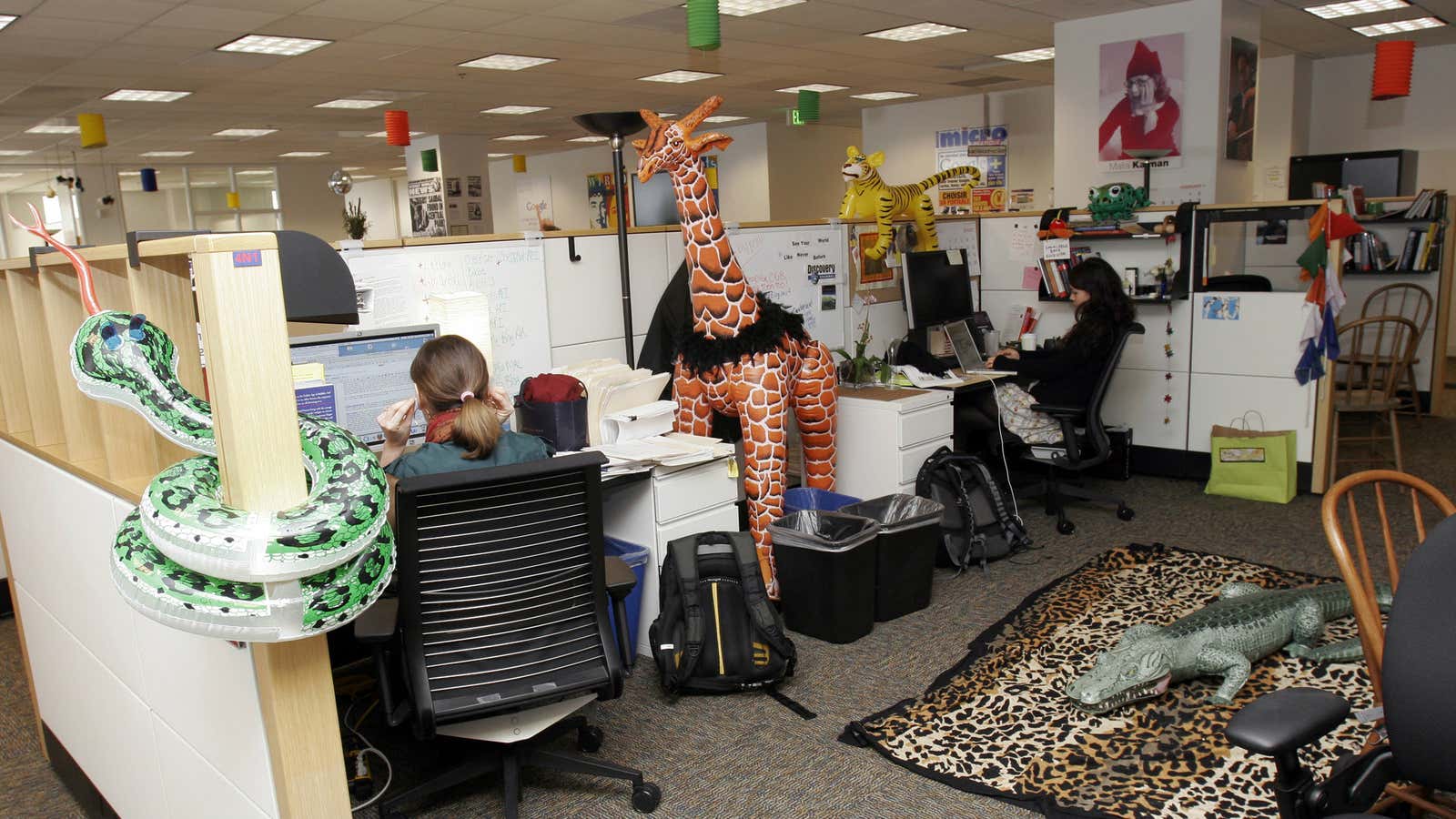Recently, there’s been something of a happiness backlash against America’s obsession with feeling happy at work. That’s because some companies have been going about it in the wrong way, working on short-term solutions that tend to treat employees more like children than adults who add real value to an organization.
In his book The Happiness Industry, political economist William Davies argues that the discourse around the popular psychology movement entirely misses the point. Instead of discussing ways to improve morale and happiness at work, he pushes us to consider a more fundamental question: Why we are having this discussion in the first place?
“Work is so focused on an intervention tailored toward making people positive so that they work harder,” he tells Quartz, pointing to the wealth of perks some businesses now offer. “We don’t really question how businesses are intrinsically run.”
Take Google, a pioneer in terms of the perks it provides employees, which has secured it a place at the top of “best places to work” lists for nearly a decade. But Davies suggests we look closer at the reason for the perks, which is to extract more hours and greater loyalty from employees—making work a place that you never need to leave.
“It’s almost shameful to complain about work in America,” says Davies, who is based in the UK. “They [American workers] seem to want to believe they should be the last person to leave the office. Brits want to get to the pub as fast as possible.” He gives an example of a casino worker in Philadelphia who shared that he and his colleagues are regularly required to dance to Pharrell Williams’ “Happy” with their manager.
As we’ve moved away from a post-industrial society into an information age, knowledge and customer-service work make up a greater portion of all labor. This kind of work places more social and psychological demands on workers, says Davies, and CEOs have increasingly adopted the role of chief psychologist for their companies, managing the well-being of their employees.
Research shows that how we feel about a job absolutely does affect our performance. But instead of focusing strictly on meeting physical needs/desires through unlimited snacks and beer, free massages, and on-campus gyms, companies should consider motivating employees by making them greater participants in the business. “Involve them into discussions about policies, ask them what they want, and distribute authority,” Davies suggests. He also recommends CEOs recognize that most employees want clearer boundaries between work and the rest of their lives: “A system where employees can go to work, and just do the work.”
Many companies have emulated Silicon Valley in adopting perks as a hiring strategy, but the next level in which they’ll compete is not by attracting them with physical amenities, but by extending more trust and allowing employees to work more autonomously.




